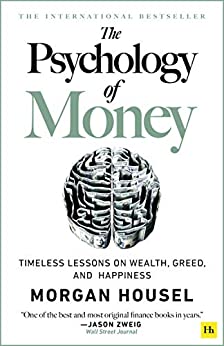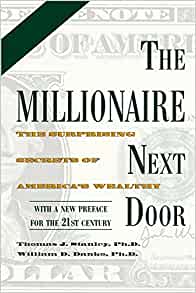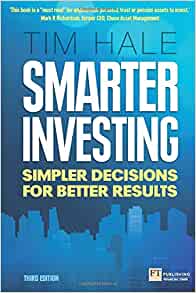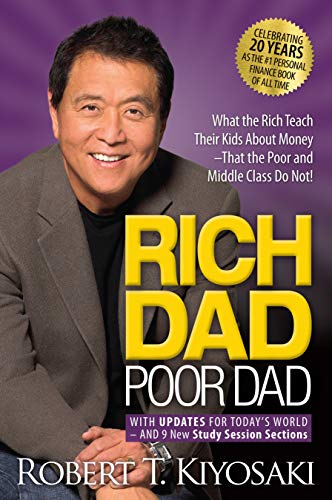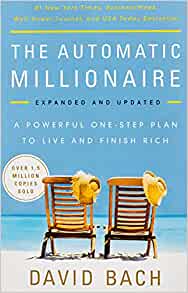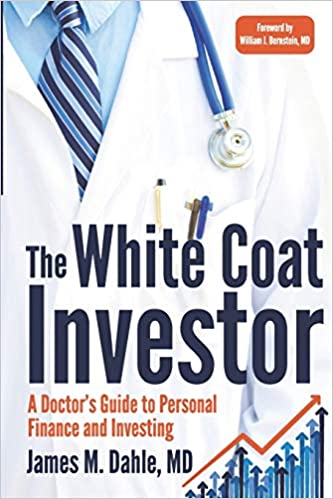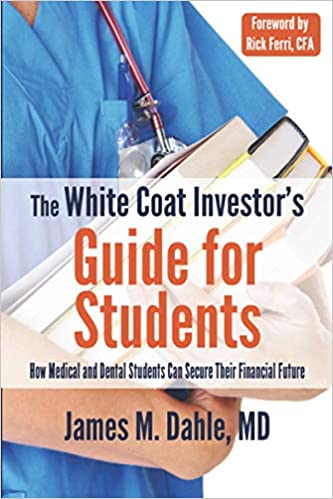Here’s some of our favourite books to help doctors make better financial decisions.
Too busy to read? Of course as doctors we understand.
But you can listen on your commute or at the gym with a free audible trial by clicking here.
Some of these links are Amazon Affiliate links – if you click them and buy, Medics Money will get a small commission which helps us, but you won’t pay any more. 😉
The Psychology of Money – Morgan Housel
If smarter investing by Tim Hale is a “how to” manual of investing, then this is a “why to” manual of investing. Housel is a journalist, who’s dad was a doctor that became disillusioned with medicine and quit on his own terms thanks to some smart financial decisions. The central theme of the book is that investing is not the study of finance, it’s the study of how people behave with money. By managing your money to build wealth, you can use this wealth to gain back control of your own time.
Housel also argues that luck has a lot to do with outcomes, something that I don’t completely agree with. But the argument the Housel makes, that your experiences shape your decisions and to some extent Luck shape the experiences you have, is a valid one. The example used is the oft quoted tale that Bill Gates school was one of the only schools in America to have a computer and that luck shaped the experiences Gates had and we know how that one ends!
If you read this book and Smarter Investing by Tim Hale, you will have a sound foundation to starting your investment journey.
The Millionaire Next Door – Thomas J Stanley
Don’t be put off by the fact this book was originally published in 1996, or written for an American audience, or has some slightly uncomfortable gender stereotypes in it (all the millionaires are men).
Chapter 4, which outlines the finances of two American doctors – Dr North (a UAW or under achiever of wealth) and Dr South (an over achiever of wealth) is something every doctor needs to read. Just try not to cry when you see that an Americans doctor salary in 1996 was triple an NHS Consultants salary today!
“You are not what you drive” is another chapter a lot of doctors that I’ve seen need to read, especially considering the aforementioned pay discrepancies.
Smarter investing – Tim Hale
The best investment book you’ve never heard of? This book is not flashy, doesn’t peddle elaborate get rich quick schemes. The later chapters are heavy on detail, largely evidence based and well referenced. It’s not particularly entertaining, but if you are looking to manage your own investing it’s a great place to start. If you thought good investing was about buying Tesla shares or Bitcoin or whatever else is being promoted in the Sunday papers, you need to read this book as a matter of urgency.
Rich Dad Poor Dad – Robert Kiyosaki
A lot of people eulogise about this book and its frequently recommended. I can partly, but not fully understand why. It gives little specific advice and seems far-fetched on occasion. But since there is no one perfect finance book – yet, there’s still plenty to take from this book.
Some of it will be uncomfortable reading for doctors, especially the opening chapter about rich dad v poor dad qualifications and some of the stories in it do seem very far-fetched. But the underlying message and themes are sound and may be uncomfortable, but necessary reading for doctors.
Key takeaways
- Assets v liability – assets generate you money, liabilities cost you money.
- Cash Flow quadrant – talks about benefits of being self-employed v employee and tax deductions are better for self-employed. Based on Americans but some of this is true for the UK tax system
- Property is a good investment – hard to argue with in the right circumstances.
- So I’ve read it, taken some useful concepts from it and I don’t think I’ve ever referred to it again, or looked something up in it. But a lot of the concepts in it are alien to a lot of doctors and for that reason alone, you should probably read it.
The Automatic millionaire – David Bach
This book is another designed for an American audience but despite this, it has some valuable lessons. Is buying coffee every day cost you $2,000,000? The “latte factor chapter” shows you how it probably is. Pay yourself first and making it automatic are such powerful concepts in personal finance that if you haven’t come across them before you need to buy this book. The latte factor is a classic demonstration of how small savings (on coffee in this case) compounded over time by a sensible investment strategy add up to massive amounts. It’s a shame is so US focused, and the latter part of the book starts talking about American specific accounts such as 401k and Roth IRA. But that notwithstanding if this book serves to make you understand the latte factor and how to pay yourself first, it’s worth reading.
Thanks to Dr Zahid Bashir for writing this review.
These two books are written by a practicing emergency physician in the US and although many of the concepts (like so many other investment books available) are tailored towards the American terminology e.g. 401K, Roth IRA, HSA etc, I still found these books extremely helpful. The best thing about these books is that the advice is tailored to physicians. Despite being a quick read, it is full of useful information, and it provides an excellent introduction to budgeting and finances for any physician. As doctors, we spend thousands of hours reading the complex text and often know nothing about how to handle money and how to plan for financial independence. Educating doctors and medical students about their finances is mission for Medics Money and for this reason, we feel that most doctors and medical student will find useful and practical information which can guide them in their quest towards financial independence.
The main themes in the books include:
- Tax-deferred retirement accounts (401k, Traditional/Roth IRA, backdoor Roth, HSA). For colleagues in UK, we can think in terms of pension contribution and ISA and other tax efficient tools available to us.
- Low expense ratio index funds (stocks, bonds, and index funds)- essentially set and forget approach with regular rebalancing along the way.
- Tax deductions (how to take advantage)
- Real estate investing (Capitalization rate, trade-offs vs index/stock/bond investing)
- Retirement saving necessities (amount needed, strategies to get there, general budgeting/testimonials)
- Estate planning (minimizing estate/inheritance/gift taxes incurred)


